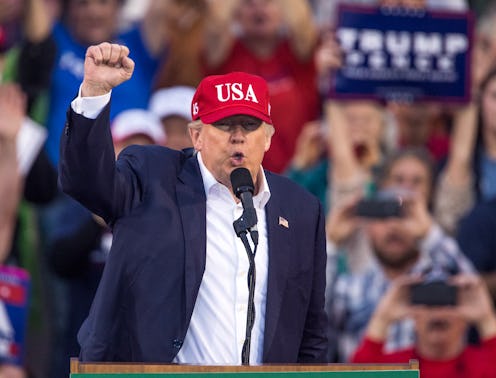News
The Real Reason Electors Won't Deny Trump
Monday is Electoral College day. Just over a month after America voted, the 538 electors of the various states will officially determine the next president. The electors will almost certainly choose Donald Trump. Despite more than 2.8 million more voters choosing Trump's opponent, the geographical location of those voters meant that Trump won the electoral college according to the usual process that goes into contesting it.
There are many who are trying to stop this. Michael Moore has written an impassioned Facebook post calling on Republican electors to stop Trump's victory and offering to pay legal fees for any who run into trouble from it. A team of celebrities made one of those things in front of a white background trying to convince Republican electors that they have a duty to fulfill by voting against Trump. The Harvard Law professor (and brief candidate for the 2016 Democratic nomination) Lawrence Lessig wrote an op-ed in The Washington Post arguing that the Constitution gives electors the legal responsibility to vote against Trump.
Though some Democratic electors have joined in with this push, at this point only a single Republican elector has voiced an intention to defect and vote against Trump. There would have to be 37 who flip for Trump not to win. And it's not going to happen, for a reason that's incredibly simple but seems to be ignored by most who are trying to make them change their minds: the Republican electors want Trump to be president.
Republican electors are not just random citizens plucked at random by their states to vote on Dec. 19. They are Republicans, chosen by the state Republican party committees of their respective states. And despite some defections, the overwhelming majority of Republicans support Trump — 90 percent, according to exit polls. Chances are the electors, as party stalwarts, are among that. They are also probably among the 82 percent of Republicans (according to an NBC News Poll) who approve of how Trump has been handling his transition.
Trump's popularity is shockingly low for an incoming president. Many Democrats see him as an existential threat to the republic, and even the others who are more measured tend to think he will be a poor or terrible president — that same NBC poll found just 12 percent of Democrats approving of his transition. Independents are split about evenly. If you picked 306 random people from across the various states Trump won and gave them the opportunity to decide if Trump should win or the Electoral College should change, there might be a different result. But the 306 electoral college members who are expected to vote for Trump are not random — they were chosen specifically for their commitment to put a rubber stamp on Trump. And as the state electors vote, 305 of them probably will.
